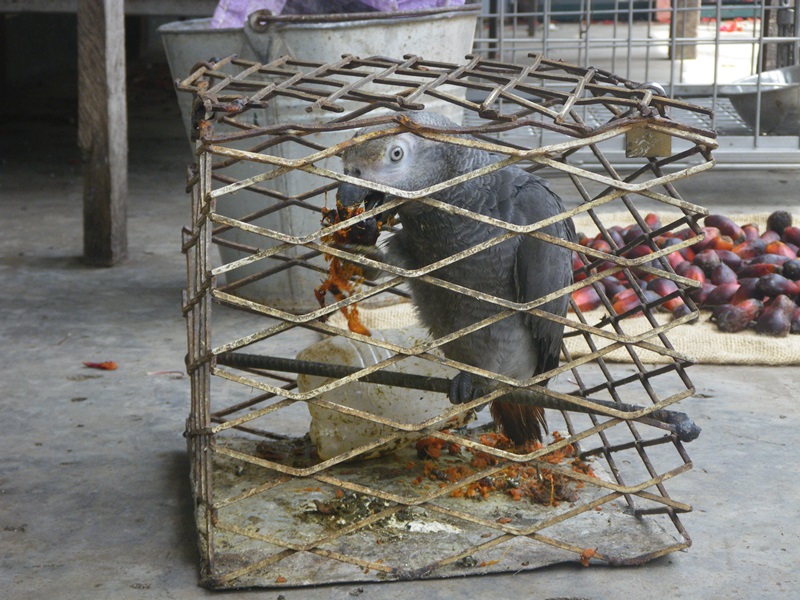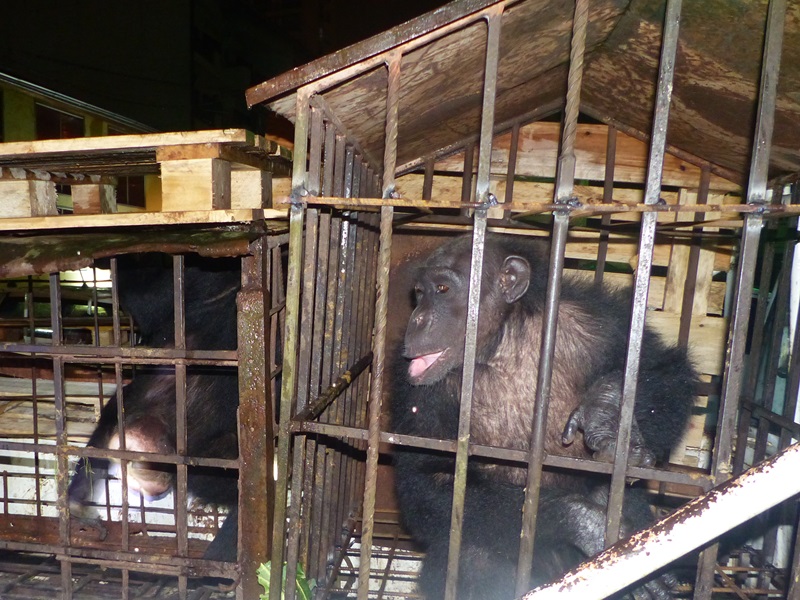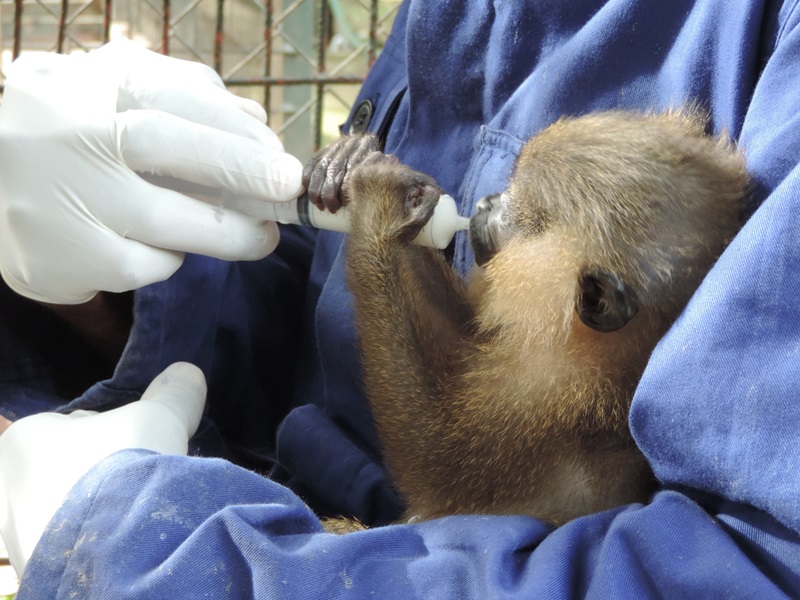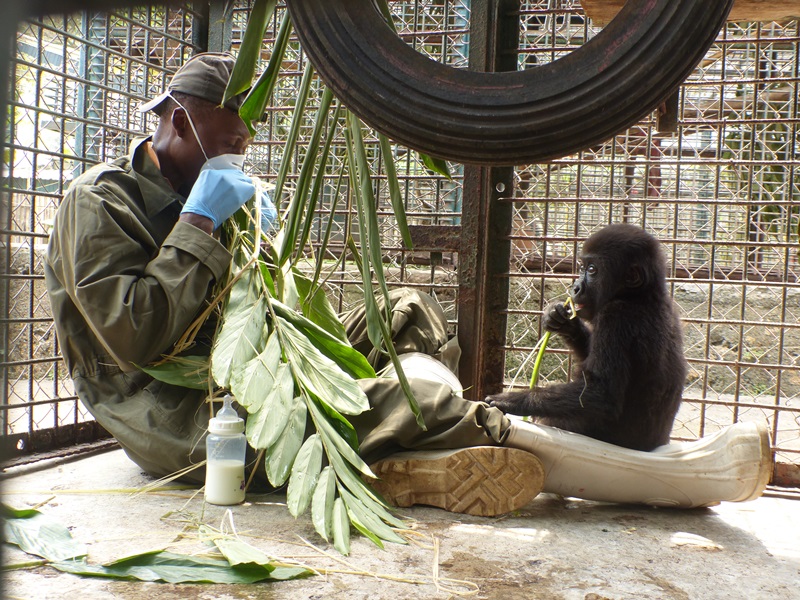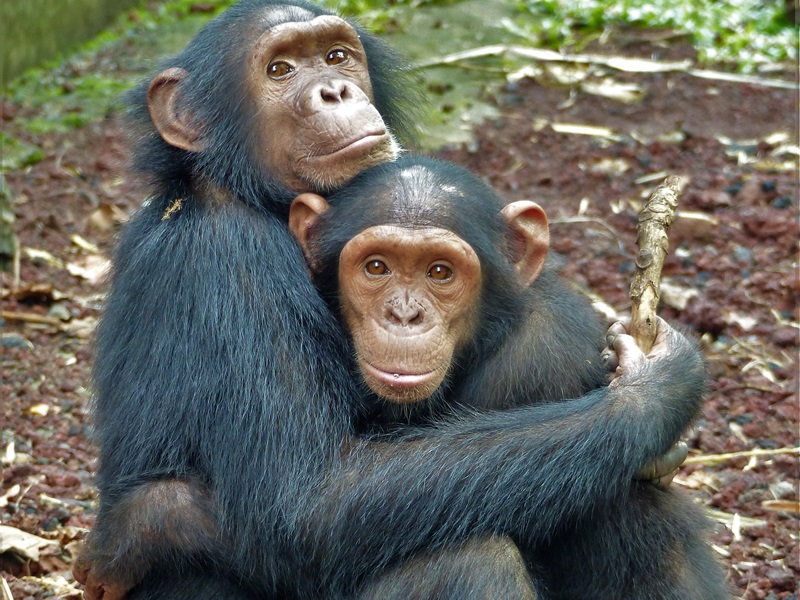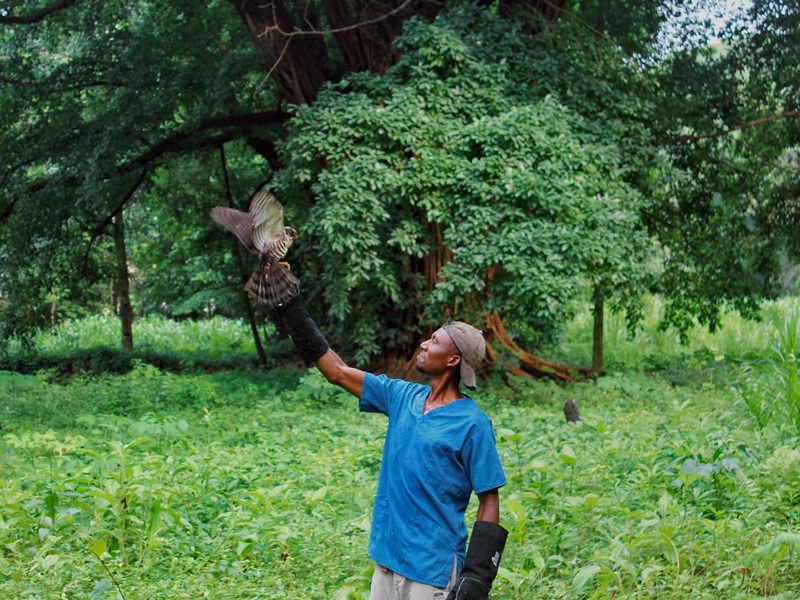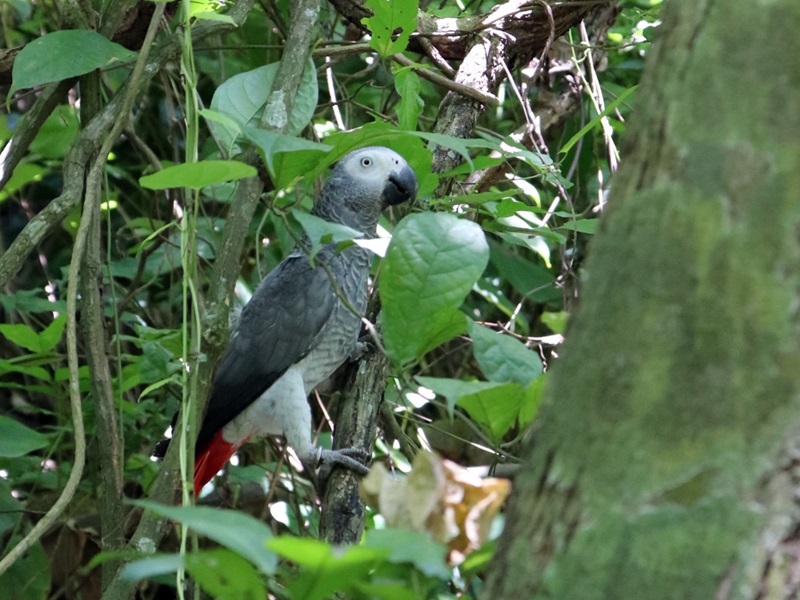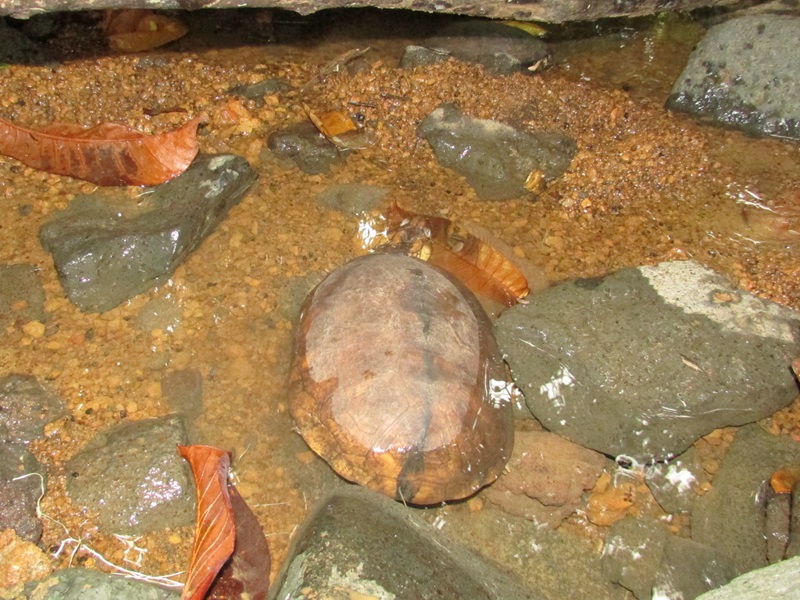A SAFE PLACE
Giving victims of the illegal wildlife trade a second chance
RESCUE AND REHABILITATION
The Limbe Wildlife Centre’s (LWC) primary mission is to rescue, rehabilitate and release every wild animal under our care.
In short, we work to reinforce Cameroonian wildlife laws by providing a sanctuary for wildlife seized by authorities. Without this support, wildlife crime would go unpunished because confiscating agencies would have nowhere to place the seized animals. Please help us to continue our life-saving work by making a donation today.
 |
Rescue
The LWC is a national rescue centre for victims of the illegal wildlife trade. In brief, we provide food, shelter, veterinary care and specialised rehabilitation to every animal who comes through our doors. Given the nature of the illegal wildlife trade, we rarely know when we will receive new arrivals, or the condition they will be in when they arrive. Therefore, we must always be prepared to welcome new arrivals, whether a great ape, tortoise, monkey or a flock of African grey parrots.
Many of the animals arrive as orphans after their mothers are killed for bush meat. Others that were kept as pets come to us after years of suffering, abuse and inadequate care. Upon arrival, they are often suffering from many ailments. This can include malnourishment, dehydration, parasite infestation, emotional trauma, and sometimes wounds from shotgun pellets, snares, ropes, machetes or repeated abuse. Many require immediate medical attention from our veterinary team and round-the-clock care.
In Cameroon, animals are classified into Class A, B, and C species. By law, Class A species are fully protected. Wildlife criminals can receive substantial fines and jail sentences for killing, capturing, holding, or selling a protected animal. Unfortunately however, these laws are rarely enforced.
Rehabilitation
Rehabilitation of wild animals, particularly primates, is a long and difficult process. Tragically, most trafficked animals are not lucky enough to make it to a sanctuary. Those that do often arrive in very bad condition. Once at the LWC, each individual goes through a short stabilisation period. The youngest arrivals require round-the-clock care from our dedicated team. This is done to mirror what their mother would provide in the wild and to ensure their survival. Older individuals, who have most often been kept in terrible conditions for much of their lives, require their own unique rehabilitative care. Years of extreme psychological trauma and neglect requires patience, dedication and a long road to recovery. Each individual needs time to adjust to a new life free from the abuse they’ve sadly grown so accustomed to.
After the stabilisation period, he or she begins a 90-day quarantine period (or longer depending on age and condition) to ensure overall health and well-being. During this time, health checks are performed by our veterinary team and any necessary treatment or care is provided. We work hard to assess their psychological trauma and we monitor their behaviour closely.
Joining a family group
Integrations into family groups are complex and vary across species, age, gender, time in captivity, and individual needs. While the physical scars from capture and captivity fade with time, the most difficult task is repairing the often severe psychological damage each arrival has endured. For most arriving at the LWC, it’s not only the first time they’ve received proper care since being forced from their forest homes, but it’s also the first time that they will once again live with members of their own species. Through specialist care, a safe home and a comprehensive enrichment programme, we do everything we can to help each animal recover from their traumatic past and provide them with a better future. Please help us continue our life-saving work with a donation today.
Release
Reintroduction is a challenging and comprehensive process. It requires a large team, extensive planning and numerous considerations. Habitat protection, disease mitigation, risk management assessments, local community interests, human-wildlife conflict prevalence, density of established/existing wild populations, availability of food and resources, genetic assessments, behavioural assessments, and socioeconomic, financial, and legal requirements must all be considered and accounted for before an animal can safely be released.
Non-primates rehabilitated at the LWC are typically released into a suitable and protected habitat under IUCN standards. This is done as soon as they are deemed healthy and we have accounted for all of their release requirements.
Primate release
The release of primates is a much more difficult task. In short, one of the biggest conservation challenges in Cameroon is the absence of effectively protected national parks. Without a safe, protected, natural habitat for release, reintroducing rehabilitated primates to the wild is often not an option. This is due to the overwhelming risk of poaching. This is especially true for primates who arrived as young orphans. Currently, we are working with Cameroon’s key wildlife agencies and communities to work towards the future aim of developing semi-free enclosures within two national parks. Through such a project we may one day have a viable path for returning rescued primates to the wild. For now, until a safe option exists, our primates require continued care and protection at the LWC.
We are committed to providing the best possible life to rescued wildlife. Here at the LWC, every animal leads a life free from fear, abuse, and neglect in the best rescue setting we can provide. However, we cannot fulfill our mission alone. Please consider a donation today to help us rebuild the lives of victims of the illegal wildlife trade.





